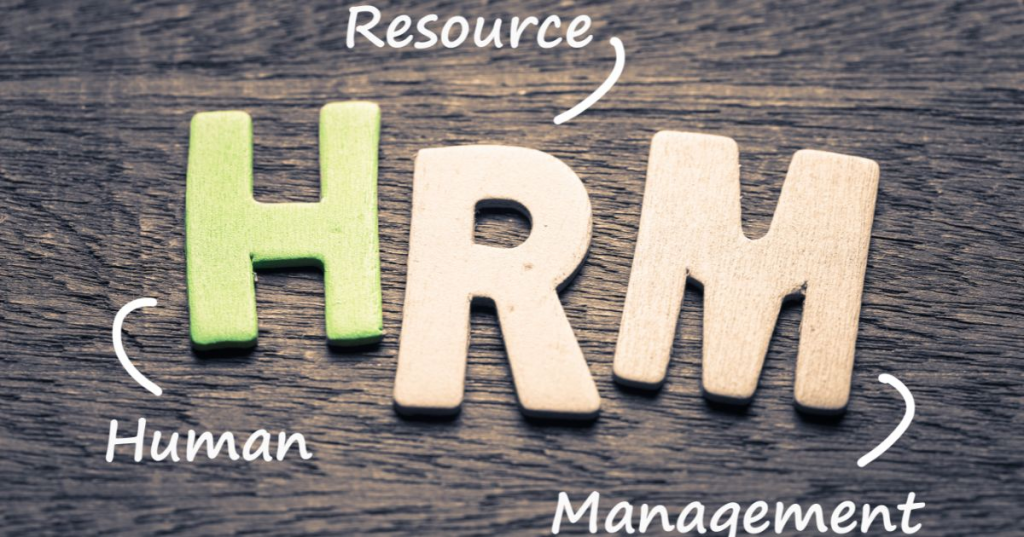Human Resource Management: Definition, Importance & Salary
Human Resource Management (HRM) is a fundamental aspect of any organization, pivotal in managing the most valuable asset—its people. At its core, HRM ensures that the organization is staffed with skilled and motivated employees who contribute effectively to its goals.
Human Resource Management (HRM) encompasses various activities, which include recruitment, training, performance management, and employee relations. Understanding HRM is essential for anyone interested in organizational success, as it plays a pivotal role in shaping the workforce and culture of a company.
This article explores the various aspects of HRM, including its definition, primary purpose, importance, essential skills required for HR managers, and an overview of salaries in the field. Understanding these components of HRM provides a comprehensive insight into how it contributes to an organization's overall efficiency and competitiveness.
What is human resource management?

Human resource management (HRM) is the strategic approach to managing an organization's workforce. It encompasses activities focused on attracting, developing, motivating, and retaining a talented workforce to achieve the organization's goals.
Overall, HRM plays a critical role in an organization's success. Focusing on attracting, developing, and motivating a talented workforce allows HR to help businesses achieve their strategic objectives and build a sustainable competitive advantage.
Human resource management is critical in driving organizational performance and success by effectively managing the people who contribute to the organization's mission, vision, and objectives.
What is the main purpose of human resource management?

The main purpose of human resource management (HRM) is to effectively manage an organization's human capital to achieve its goals and objectives. It involves a variety of functions and activities aimed at maximizing employee performance and ensuring that the organization can operate efficiently and effectively. Key purposes and functions of HRM include:
Recruitment and Retention
Recruitment and retention are significant responsibilities of human resource management (HRM). Let's delve into how they serve as key purposes within HRM:
Recruitment
One of the primary functions of HRM is to attract and select the right talent to fill vacant positions within an organization. HRM plays a much larger role in ensuring an organization has the right people with the right skills at the right time to achieve its strategic goals. Recruitment includes various activities such as job analysis, job posting, screening resumes, conducting interviews, and making job offers. Effective recruitment ensures that the organization has a pool of qualified candidates to choose from, thereby maintaining or enhancing its competitive advantage in the market.
Retention
Employee retention strategies aim to create a positive work environment, foster employee engagement, and address factors that may lead to turnover, such as job dissatisfaction or lack of growth opportunities. Retention efforts include offering competitive compensation and benefits, providing opportunities for career development, and promoting a healthy work-life balance.
Employee Development
HRM facilitates employee training and development programs that enhance skills, knowledge, and capabilities. Investing in employee development not only improves individual performance but also increases employee engagement, job satisfaction, and loyalty.
Employee development includes creating opportunities for employees to learn new skills, enhance existing ones, and grow professionally. It brings benefits for both the employee and the organization:
Employee Benefits: Development programs equip employees with the skills and knowledge to excel in their roles, increasing their job satisfaction and career prospects.
Organizational Benefits: A skilled and developed workforce is more productive, adaptable, and innovative, leading to a competitive advantage for the organization.
Performance Management
HRM establishes performance management systems to set clear expectations, provide feedback, and evaluate employee performance. Effective performance management promotes accountability, identifies areas for improvement, and rewards high performers, contributing to organizational effectiveness. Here’s how it serves as a focal point within HRM:
Goal Setting and Alignment: HRM facilitates the process of setting clear, measurable goals for employees that align with organizational objectives. HRM ensures alignment between individual and organizational goals. They help employees understand how an individual's work contributes to the organization's success.
Regular Feedback and Coaching: Performance management involves providing employees with regular feedback on their performance, acknowledging strengths, and identifying areas for improvement. HRM supports managers in providing constructive feedback and coaching to help employees reach their full potential.
Performance Appraisal and Evaluation: HRM establishes systems and processes for evaluating employee performance regularly. Performance evaluations help identify high performers, address performance issues, and make decisions related to rewards and recognition.
Recognition and Rewards: HRM plays a key role in designing and implementing reward and recognition programs that acknowledge and incentivize high performance. Popular rewards are bonuses, promotions, or non-monetary rewards such as public recognition or career advancement opportunities.
Employee Engagement and Motivation: Effective performance management contributes to employee engagement and motivation by providing employees with meaningful work, clear expectations, and opportunities for growth and development.
Continuous Improvement: Performance management is an ongoing process that allows HRM to identify areas for improvement in organizational processes, systems, and practices. A dynamic HRM can identify trends, address issues proactively, and drive continuous improvement across the organization.
Overall, performance management is a critical function of HRM that helps organizations maximize employee performance, achieve strategic objectives, and maintain a competitive edge in the marketplace.
Workforce Planning
HRM conducts workforce planning to anticipate future staffing needs based on business objectives and market trends. HRM's mission is to ensure that the right number of employees with the right skills are available when needed. So, HRM can help organizations adapt to changes and seize growth opportunities.
Let's delve into how Workforce Planning serves as a primary focus within HRM:
Anticipating Future Needs: HRM engages in workforce planning to forecast the organization's future talent needs based on strategic objectives, growth projections, and changes in the business environment.
Talent Acquisition: Workforce planning guides HRM in identifying gaps in the current workforce and developing strategies to fill those gaps. To perform this task, HRM can recruit externally, promote from within, or implement talent development programs to cultivate needed skills and competencies.
Succession Planning: HRM engages in succession planning to identify and develop internal talent. These actions mitigate the risk of talent shortages and ensure continuity in leadership and operations.
Optimizing Workforce Efficiency: Workforce planning helps HRM optimize workforce efficiency by ensuring that staffing levels are aligned with workload demands.
Adapting to Change: Workforce planning enables HRM to adapt to changes in the external environment, such as technological advancements, regulatory changes, or shifts in market demand.
Mitigating Risks: HRM engages in workforce planning to mitigate risks associated with talent shortages, turnover, and other workforce-related challenges.
In summary, workforce planning is a critical purpose of HRM that involves anticipating, acquiring, developing, and optimizing the organization's human capital to support its strategic objectives and drive sustainable growth.
Employee Relations
HRM manages employee relations to create a positive work environment where conflicts are resolved promptly, and employees feel valued, respected, and supported. Strong employee relations contribute to higher morale, productivity, and employee retention.
Creating a Positive Work Environment: HRM fosters a positive work environment where employees feel respected, valued, and supported. Therefore, HRM should promote open communication, trust, and collaboration among employees and between employees and management.
Conflict Resolution: Employee relations encompass managing conflicts and disputes that may arise in the workplace. HRM provides mechanisms for resolving conflicts through mediation, negotiation, and grievance procedures, aiming to address issues in a fair and constructive manner.
Employee Engagement: HRM plays a crucial role in engaging employees and maintaining high levels of morale and motivation. HRM creates a sense of belonging and commitment among employees by organizing team-building activities, recognition programs, and employee feedback mechanisms.
Policy Development and Compliance: HRM develops and implements policies and procedures that govern employee behavior and conduct in the workplace. These policies are related to anti-discrimination, harassment prevention, code of conduct, and employee rights. Ensuring compliance with these policies is essential for maintaining a harmonious work environment and mitigating legal risks.
Employee Well-being: HRM promotes employee well-being by providing support services such as employee assistance programs, wellness initiatives, and flexible work arrangements. Addressing employees' physical, emotional, and mental health needs contributes to their overall satisfaction and productivity.
Legal Compliance
HRM ensures compliance with labor laws, regulations, and industry standards to mitigate legal risks and protect the organization from costly lawsuits and penalties. Compliance with employment laws promotes fairness, equality, and diversity in the workplace. Compliance with employment laws is a legal obligation and an essential element for maintaining the organization's reputation and sustainability in the marketplace.
Understanding and Applying Employment Laws: HRM ensures that the organization adheres to all relevant employment laws and regulations, including labor standards, equal employment opportunity, workplace safety, and minimum wage requirements. HR's mission includes staying informed about changes in legislation and interpreting legal requirements.
Developing and Implementing Policies and Procedures: HRM is responsible for developing and implementing policies and procedures that comply with legal requirements and promote fair and equitable treatment of employees. Clear and consistent policies help prevent legal disputes and ensure a safe and respectful work environment.
Managing Employee Records and Documentation: HRM maintains accurate and up-to-date employee records and documentation in compliance with legal requirements. The records that need to be secured are related to hiring, employment contracts, payroll, benefits, performance evaluations, and disciplinary actions. Proper record-keeping is essential for demonstrating compliance with legal obligations and responding to audits or legal inquiries.
Handling Employment Disputes and Investigations: In cases of alleged misconduct or violations of employment laws, HRM conducts thorough investigations and ensures that appropriate corrective actions are taken.
Health and Safety Compliance: HRM plays a key role in ensuring compliance with health and safety regulations to maintain a healthy work environment. HRM manages implementing workplace safety programs, conducting risk assessments, providing safety training, and addressing hazards or unsafe conditions promptly.
Union Relations and Collective Bargaining Compliance: HRM manages relations with labor unions and ensures compliance with collective bargaining agreements if the organization has unionized employees.
Importance of human resource management

Here's why human resource management (HRM) is important for organizations:
Talent Acquisition and Retention
HRM helps organizations find and retain skilled employees crucial for success. HRM attracts top talent through effective recruitment and offering competitive compensation and benefits packages. They ensure the organization has the right people in place to achieve its goals.
Improved Performance and Productivity
HRM focuses on developing employee skills through training programs and performance management. It empowers employees to excel in their roles, leading to increased productivity and overall better organizational performance.
Through goal setting, regular feedback, and performance reviews, HRM helps employees understand expectations, track progress, and identify areas for improvement.
Positive Work Environment and Employee Engagement
Human Resource Management (HRM) fosters a positive work culture through targeted employee relations initiatives, such as conflict resolution and open communication. Effective conflict resolution strategies, including mediation, training, and clear policies, help address disputes constructively, reducing their negative impact on morale and productivity.
Open communication is equally vital, as it involves implementing feedback mechanisms, promoting transparent leadership, and holding regular meetings to ensure ongoing dialogue and alignment with organizational goals.
These efforts build a work environment characterized by trust, respect, and a sense of belonging. A positive work culture leads to a more engaged workforce, where employees are emotionally invested in their work and motivated to contribute their best.
Compliance and Risk Management
HRM mitigates legal risks and safeguards both the organization and its employees. Ensuring workplace safety involves adhering to Occupational Safety and Health Administration (OSHA) regulations, conducting regular safety training, and maintaining a safe work environment to prevent accidents and injuries.
Protecting employee rights involves maintaining transparent and equitable practices related to wages, benefits, working hours, and conditions of employment. HRM’s diligence in these areas not only prevents costly legal disputes and potential penalties but also fosters a fair and respectful workplace. This compliance framework builds employee trust and confidence, leading to higher job satisfaction and organizational loyalty.
HRM’s commitment to upholding labor laws and protecting employee rights is fundamental to the organization’s ethical integrity, legal standing, and overall success.
Strategic Alignment
Human Resource Management (HRM) plays a pivotal role in aligning the people strategy with the organization's overall goals by understanding talent needs and fostering a skilled workforce. HRM develops targeted recruitment strategies to attract candidates who align with the organization's strategic objectives. HRM also implements comprehensive training and development programs to bridge skill gaps and prepare employees for future challenges, ensuring that the workforce remains competitive and capable of driving organizational success.
Robust performance management systems are used to set clear, measurable objectives and provide regular feedback, aligning individual performance with organizational goals and motivating employees to perform at their best. HRM ensures the organization has the human capital required to achieve its strategic objectives, enhancing overall performance and driving long-term success.
Innovation and Adaptability
A strong HRM program encourages a culture of learning and development. Therefore, employees easily adapt to changing technologies and market trends, fostering innovation and keeping the organization competitive.
In short, HRM plays a vital role in an organization's success. HRM creates a foundation for a productive, engaged, and legally compliant work environment, ultimately propelling the organization toward achieving its goals.
Essential Skills of a Human Resource Manager

Effective Human Resource (HR) managers wear many hats. They need a broad range of skills to navigate the complexities of today's workplace. Here are some essential skills for HR managers to excel in their roles:
Core HR Knowledge
HR knowledge is the foundational requirement for effective human resource management:
Employment Law: Understanding labor laws and regulations related to recruitment, compensation, employee rights, and safety is fundamental.
Workforce Management: Knowledge of talent acquisition, performance management, training and development, and employee relations is crucial for managing the HR lifecycle.
Benefits Administration: Expertise in designing, implementing, and administering employee benefits packages is essential.
Soft Skills
Soft skills foster a positive workplace culture and navigate complex interpersonal dynamics.
Communication: Exceptional written and verbal communication skills are necessary for conveying complex information, conducting interviews, delivering training, and resolving conflicts.
Interpersonal Skills: Building strong relationships with employees at all levels, fostering trust, and demonstrating empathy are key to successful HR interactions.
Negotiation and Conflict Resolution: The ability to negotiate effectively with employees and mediate conflict situations is crucial for maintaining a harmonious work environment.
Problem-Solving and Decision-Making: HR professionals regularly face challenges. Strong problem-solving skills and the ability to make sound decisions based on data and analysis are essential.
Business Acumen
Key aspects of business acumen essential for HR professionals:
Strategic Thinking: Aligning HR initiatives with the organization's overall strategy is essential. HR managers need to understand the business landscape and how their decisions impact the bottom line.
Data Analysis and Metrics: The ability to analyze HR data, identify trends, and measure the effectiveness of HR programs is important for continuous improvement.
Financial Literacy: Understanding budgeting, cost-benefit analysis, and the financial implications of HR decisions is crucial for responsible resource allocation.
Additional Skills
These additional skills help HR professionals navigate the complexities of the modern workplace and address emerging challenges in the field.
Technology Savvy: HR professionals leverage technology for various tasks, from applicant tracking systems to online learning platforms. Being comfortable with technology is essential for every HR.
Project Management: HR initiatives often involve multiple steps and stakeholders. Strong project management skills ensure smooth execution and successful outcomes.
Staying Current: The field of HR is constantly evolving. HR managers should stay updated on industry trends, best practices, and legal changes.
Honing these essential skills allows HR managers to manage the people aspect of an organization, fostering a positive work environment, attracting and retaining top talent, and ultimately contributing to the organization's success.
Human resource management salary

According to data from the website Indeed, the average monthly salary for a Human Resources Manager in India is ₹29,923, based on 5,400 reported salaries. However, to gain a comprehensive understanding, it's essential to consider factors like geographic location, experience level, and industry variations.
Geographic Location
Geographic location significantly affects the salaries of Human Resources Managers due to variations in cost of living, regional economic conditions, industry presence, and demand for HR professionals.
Variation Across Regions: Salaries for HR Managers can vary significantly depending on the city or region. Metropolitan areas like Mumbai, Delhi, and Bangalore typically offer higher salaries than smaller cities and rural areas due to the higher cost of living and the concentration of large corporations.
Cost of Living: Differences in the cost of living across regions can also affect the attractiveness of the salary. For instance, ₹29,923 might offer a comfortable living in smaller cities but may be less sufficient in larger, more expensive cities.
Experience Level
As HR professionals gain experience and take on more complex and strategic roles, their salaries increase significantly.
Entry-Level vs. Senior Positions: The average salary reported does not differentiate between entry-level HR managers and those with extensive experience. Typically, HR managers with more years of experience and higher qualifications command significantly higher salaries.
Professional Growth: As HR professionals advance in their careers, they often move into higher-paying roles such as HR Directors or Vice Presidents of HR, which are not reflected in the average salary for the general title HR Manager.
Industry Differences
Here’s a detailed analysis of how industry differences affect HR manager salaries:
Sector Variations: The industry in which an HR manager works can greatly influence their salary. For example, HR managers in the tech industry often earn more than those in manufacturing or retail due to the higher revenue margins and competitive nature of the tech sector.
Company Size: Larger companies with more extensive HR departments may offer higher salaries compared to smaller firms with limited HR needs and budgets.
Conclusion
Human resource management (HRM) encompasses a wide range of functions aimed at effectively managing an organization's most valuable asset: its people. The main purpose of HRM is to optimize the performance and productivity of employees while ensuring compliance with laws and regulations. To excel in this field, HR managers require diverse skills, including communication, leadership, and strategic thinking. Additionally, understanding salary trends provides valuable insights into the compensation landscape for HR professionals. By recognizing the significance of HRM and the skills required for success in this field, organizations can build strong, engaged workforces that drive sustainable growth and success.
HRM is a field that requires many diverse skills. If you need courses to train these skills, you can register for Skilltrans courses today.

Meet Hoang Duyen, an experienced SEO Specialist with a proven track record in driving organic growth and boosting online visibility. She has honed her skills in keyword research, on-page optimization, and technical SEO. Her expertise lies in crafting data-driven strategies that not only improve search engine rankings but also deliver tangible results for businesses.



